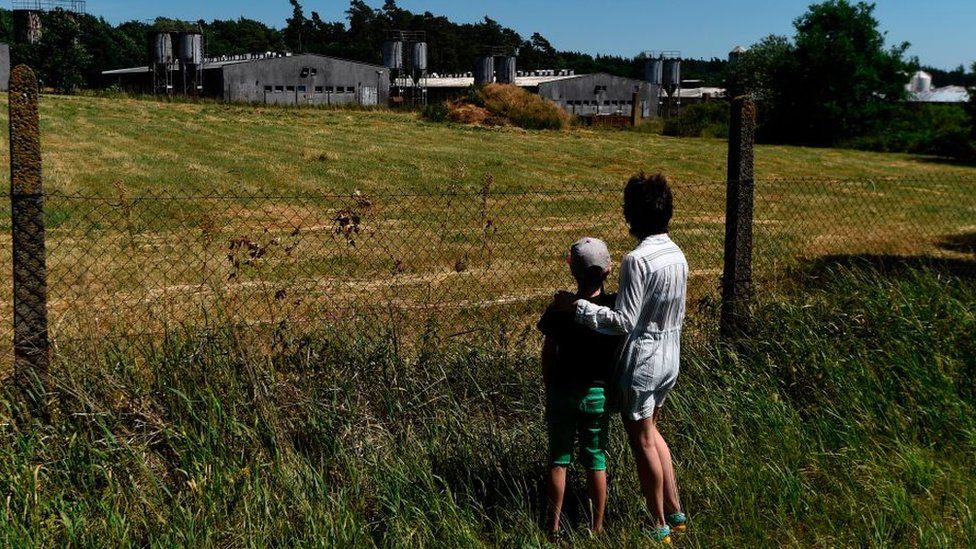ARTICLE AD BOX
By Rob Cameron
BBC News, Prague
 Image source, Getty Images
Image source, Getty Images
Ceremonies have been held at the site every year, often disrupted by the stench of manure (file pic)
Demolition work is to start on Friday on a Czech pig farm built on the site of a Nazi-era concentration camp for Roma.
It ends decades of often bitter dispute between the farm's owners, the government and Roma rights groups.
Historians say 1,309 Roma citizens were interned at Lety in South Bohemia during the war.
Many children were among the 326 people who died there of malnutrition, maltreatment and disease.
The camp was staffed by Czech guards, rather than the Nazi SS, and none of them were convicted after the war.
Czech historians and politicians have long clashed over Lety's history and exact role in the Holocaust.
Lety was originally established by the Czechoslovak government two weeks before the Nazi occupation in March 1939, as a labour camp for "workshy citizens".
In July 1942, the Nazi Protectorate authorities transformed it into a "gypsy camp", and the first Roma inmates arrived in the autumn.
Most of those who died were caught up in a typhoid epidemic that swept through the camp during the winter of 1942.
Unable to control the epidemic, the Nazi authorities closed the camp in May 1943. Those left alive were sent on to a similar facility in Moravia or to Auschwitz.
The Roma population of Bohemia and Moravia was almost entirely wiped out in the Porajmos (Devouring) - the Roma word for the Holocaust.
During the 1970s, the industrial pig farm was built at Lety, becoming a source of deep anguish to Czech Roma. The community faces discrimination to this day.
The demolition marks the culmination of a long and arduous campaign by Roma rights activists to turn the site into a sombre place of remembrance.
There is no longer any trace of the camp and a modest stone memorial was erected in a little glade at the farm for those who died. But annual ceremonies there were often disrupted by the stench of manure.
Critics of the demolition, who have included former Prime Minister Andrej Babis, argue Lety was not a concentration camp but a work camp.
They point out the farm was built just adjacent to the site of the camp, rather than on it.
The quarrel was finally resolved when the government bought the pig farm from its owners and closed it, transferring the site to the Museum of Romani Culture.
Bulldozers were due to move in on Friday after a ceremony. The area will make way for a proper museum dedicated to the camp and the Porajmos.
Who are the Roma?
Europe's Roma: 'Even dogs can't live like this' under Covid
- Europe's largest ethnic minority - about six million in EU
- Nomadic people whose ancestors are thought to have left north-west India at the beginning of the 11th Century and scattered across Europe
- EU's largest Roma minority is in Romania - more than a million
- Many Roma in Europe are hampered by poverty, low literacy levels and discrimination

 2 years ago
19
2 years ago
19








 English (US) ·
English (US) ·